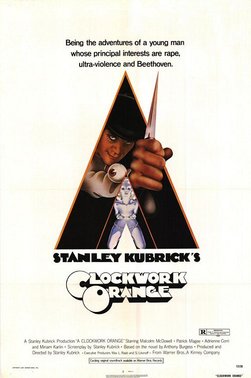
Ultraviolence, which debuted this week at #1 on the Billboard charts, is as unlikely a number-one album as any you could imagine.Its songs are not made for the radio or the dance floor. Almost all the music is slow enough to induce narcolepsy and the lyrical content is R-rated, troubling, and fierce. Lana Del Rey is simultaneously creating pop music and commenting on its culture and values.
Sasha Geffen of Consequence of Sound and Time describes Ultraviolence as an album that looks at history and tries to fill in the gaps. The predominantly male icons of rock and pop have written songs about the opposite sex that portray women as sex goddesses and pedestaled figures at best, evil succubuses at worst, and sometimes all in the course of a song. It’s a sad, limiting narrative.
It also can make a listener wonder what the men who sang these songs did to the women they sing about, and what the women think about them. Those thoughts may run like something as accusatory as this:
“I can’t fix him, can’t make him better/And I can’t do nothing about his strange weather…I can’t break through your world…Your heart is unbreakable.”
Del Rey takes the male narrative of rock music and writes songs about the women labeled as sirens, heartbreakers, and cheaters, telling the story from their point of view and digging into their feelings and motivations. Instead of simplistic good and bad figures, she works to make them human.
The title of the album and its second track, after the overture-like “Cruel World,” comes from A Clockwork Orange, and Anthony Burgess’s neologism is an appropriate one. Lana Del Rey in this song describes herself as someone like Alex DeLarge: dangerous, capable, unpredictable and still able to be hurt. She is being abused (Lifting lines from Carole King, she states “He hit me and it felt like a kiss…he hurt me and it felt like true love.”) but states she is filled with “poison” and “rage.” Crucially, some lyrics reappear near the album’s end in “Fucked My Way Up to the Top,” a song that finds her in control, having vanquished men like her abuser in “Ultraviolence” far behind.
Ultraviolence becomes a cycle where men and women alike are able through sheer force of personality to inflict damage on each other. Del Rey spends the entire album in this cycle, challenging men to come at her with “their Bible and their gun,” for they may attack her but she will strike back.
Ultraviolence takes many forms for Del Rey. On “Shades of Cool,” described by The Huffington Post as the greatest James Bond theme song without a Bond movie, and “West Coast,” the swinging leadoff single, a perceptive Del Rey keeps successful men at a very frustrating arm’s length, momentarily lets them in, and then watches them crumble. The jangly “Brooklyn Baby” and deliberately over-the-top “Money Power Glory” find Del Rey responding to critics who accuse her for not being genuine. The first song is a goofy celebration of her inspirations combined with a riposte to those who wonder why she loves them: “You never liked the way I said it/If you don’t get it, then forget it/’Cause I don’t have to fucking explain.” The second gives us a multitude of overdubbed Del Reys crying “Hallelujah!”, and protesting so much for material success that it’s clear she doesn’t much care for it…her life, she says in the tune’s one moment of honesty, “comprises of losses and wins and fails and falls.” She wants experience and the freedom to try and potentially fail rather than money, power, and glory.
Del Rey ultimately achieves money, power, and glory in “Fucked My Way Up to the Top” but immediately ends Ultraviolence on a different note. In “Old Money”, nostalgically reflecting on her triumph, she asks if a man will love her for her intellect and emotions (“Will you still love me when I shine from words but not from beauty?”), and in the album’s loveliest moment promises “I’ll run to you” in return. Then she wraps the record up with a cover of “The Other Woman,” a torch song written by Jessie Mae Robinson and recorded by Del Rey’s hero Nina Simone that brings the narrative of Ultraviolence full circle, pointing out that the voice of the Other Women has always lurked, sometimes less quietly, always strong.
Ultraviolence, by design, keeps the songs at the same languid pace. The hip-hop from her earlier career is gone, replaced by organ, piano, shimmering mellotron, and producer Dan Auerbach’s evocative electric and 12-string acoustic guitars, with the sound run through a production where every string pluck and stretched tape loop is felt, but filtered through a dreamlike distance. “Brooklyn Baby” and “West Coast” only momentary lifting the tempo. I can’t remember how three or four songs in the middle go because until the closing tracks, everything sounds so much the same.
But if the music is lacking, the conviction and sincerity compensate. In The New York Times, Del Rey talked about what her songwriting means:
I want one of two things. I either want to tell it exactly like the way it was, or I want to envision the future the way I hope it will become. I’m either documenting something or I’m dreaming.
What is documented on Ultraviolence is deliberately unsettling, but it is also hopeful. The tropes of pop music–love, lust, loss, and a little partying–have all too often depicted women according to the Madonna/whore dichotomy described in the beginning of this article. By the album’s end, Lana Del Rey manages to depict a possible new direction, in which women embracing their femininity and sexuality and expressing their desires are not marks of figures to be objectified or vilified but marks of being human. What Del Rey dreams of is a romantic, egalitarian future, expressed through her grand design.






